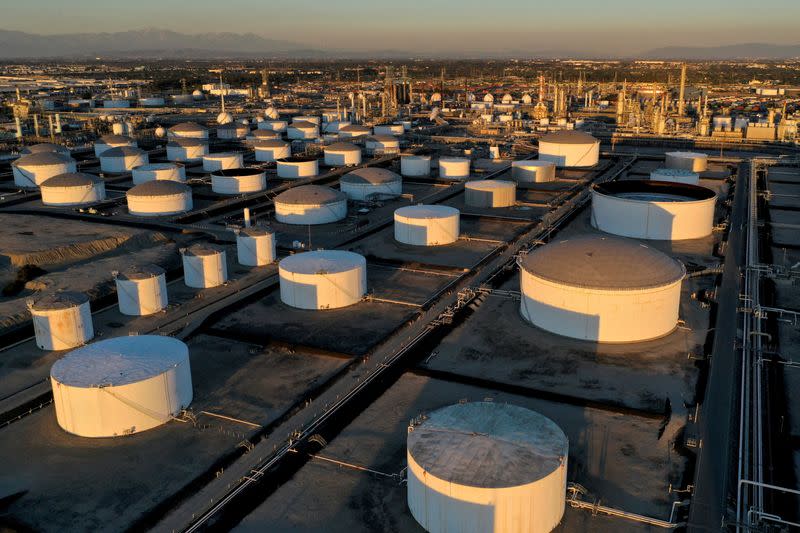Oil pares gains after strongest weekly rise in over a year

SINGAPORE (Reuters) - Oil prices pared gains in early trade on Monday after charting their biggest weekly rise in over a year on Friday amid mounting threats of a region-wide war in the Middle East.
Brent crude futures fell 43 cents, or 0.5%, to $77.62 per barrel by around 0015 GMT. U.S. West Texas Intermediate crude futures slipped 35 cents, or 0.5%, to $74.03 per barrel.
Last week, the Brent contract gained over 8% on a weekly basis and the most in a week since January 2023, while the WTI contract gained 9.1% week-on-week, the most since March 2023.
"Profit-taking might have been the cause of the retreat after the price surge last week," said independent market analyst Tina Teng.
"However, the oil market will likely continue to face upside pressure due to fears of Israel's retaliation response to Iran. Geopolitical tensions are now playing a key role in shaping the market trend."
Israel bombed Hezbollah targets in Lebanon and the Gaza Strip on Sunday ahead of the one-year anniversary of Hamas' Oct. 7 attacks on Israel that triggered war. Its defence minister also said all options were open for retaliation against Iran.
That came after Iran launched a missile attack on Israel last week in response to Israel's operations in Lebanon and Gaza.
Meanwhile, Israeli police said early on Monday that Hezbollah rockets had hit Israel's third-largest city of Haifa.
Despite the rally in oil prices last week, the impact of this conflict on oil supply will be relatively small, said ANZ Research in a Monday client note.
"We see a direct attack on Iran's oil facilities as the least likely response among Israel's options. Such a move would upset its international partners, while a disruption to Iran's oil revenue would likely leave it with little to lose, potentially provoking a more ferocious response," it said.
"Moreover, we have seen a diminished impact of geopolitical events on oil supply. This has led to a significantly smaller geopolitical risk premium being applied to oil markets in recent years, and OPEC's 7 million barrels per day of spare capacity provides a further buffer."
OPEC and its allies including Russia and Kazakhstan has millions of barrels of spare capacity, as it has been cutting production in recent years to support prices amid weak global demand.
The producer group has enough spare oil capacity to compensate for a full loss of Iranian supply if Israel knocks out that country's facilities, but it would struggle if Iran retaliates by hitting installations of its Gulf neighbours.
At its last meeting on Oct. 2, OPEC and its allies, or OPEC+, kept its oil output policy unchanged including a plan to start raising production from December.
(Reporting by Emily Chow; Editing by Christopher Cushing)